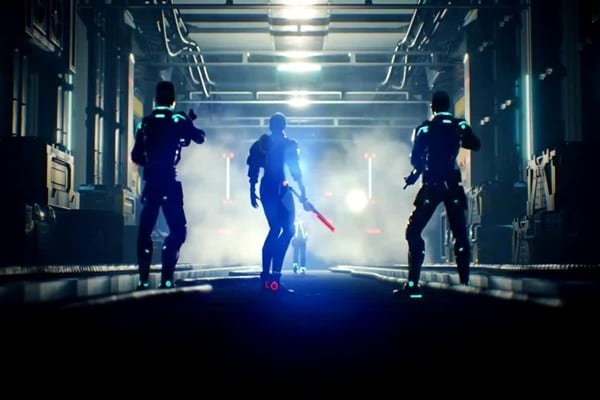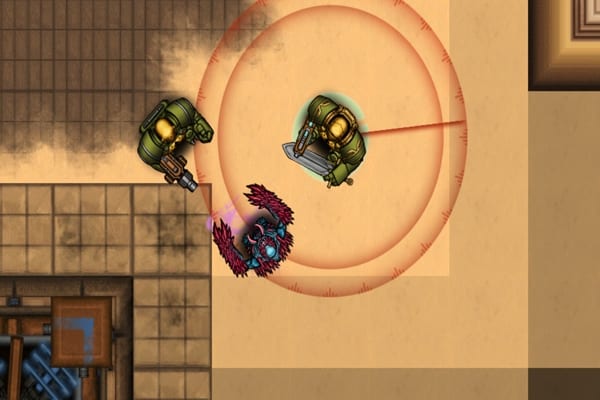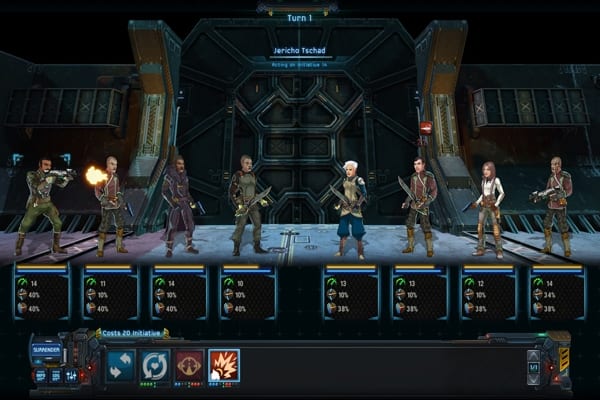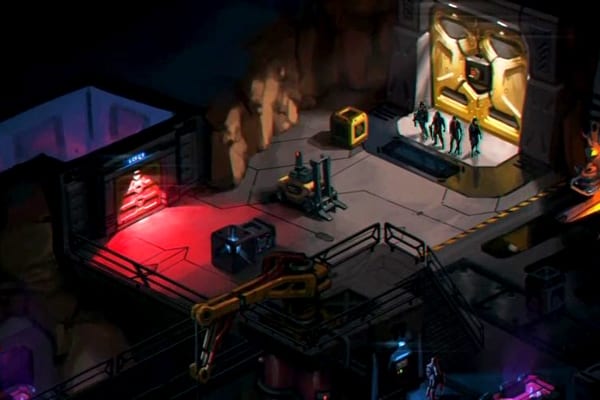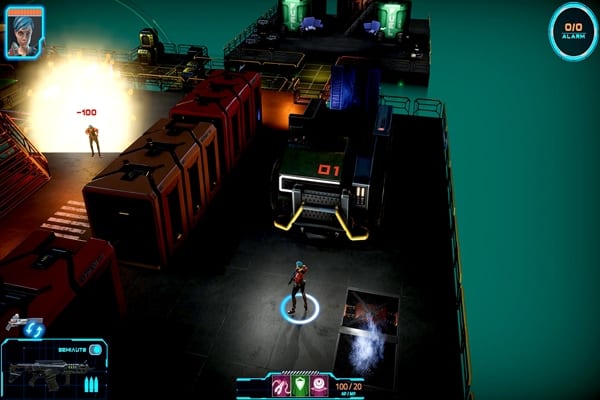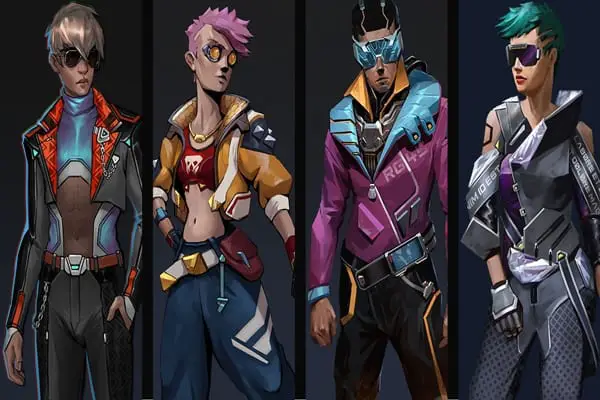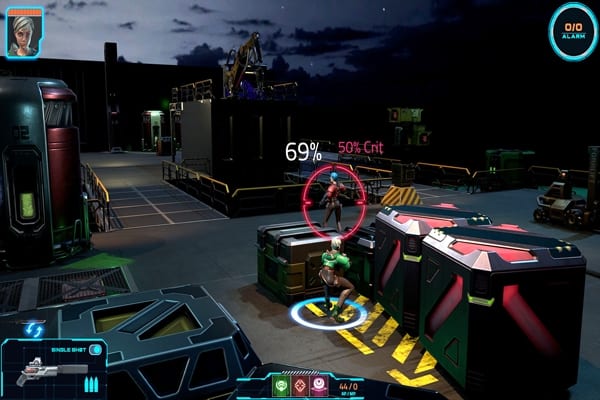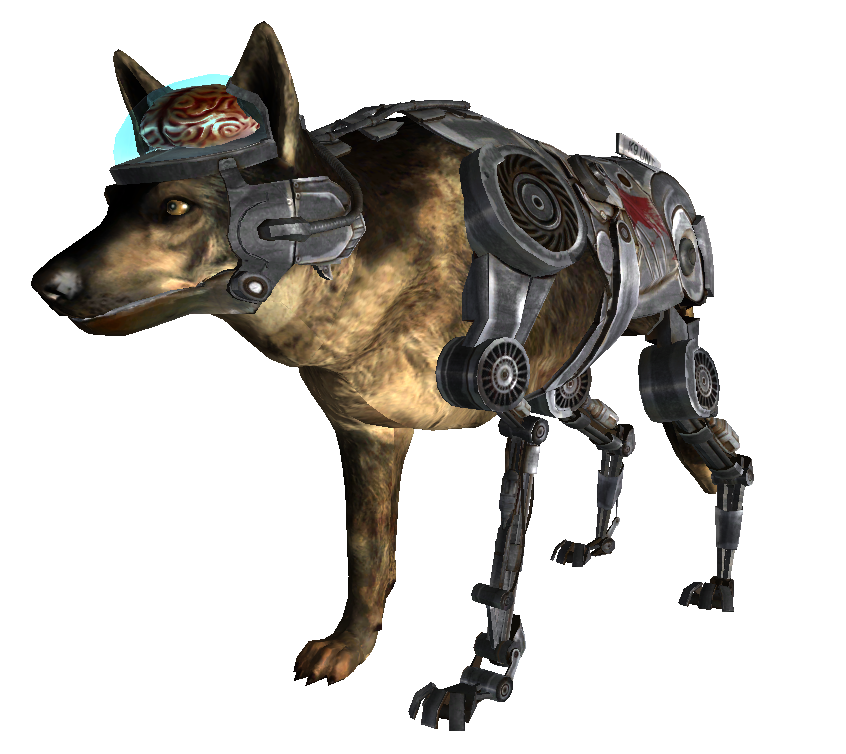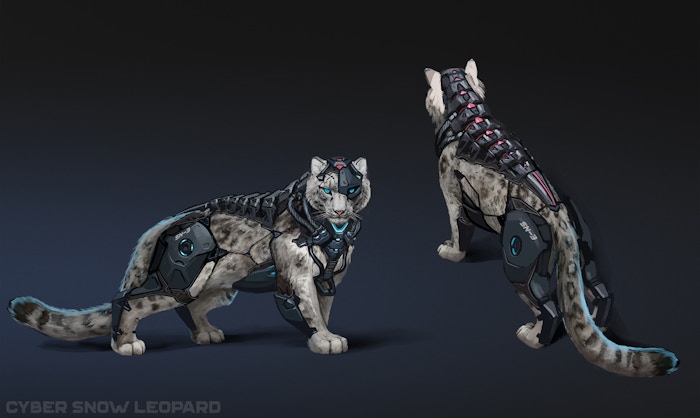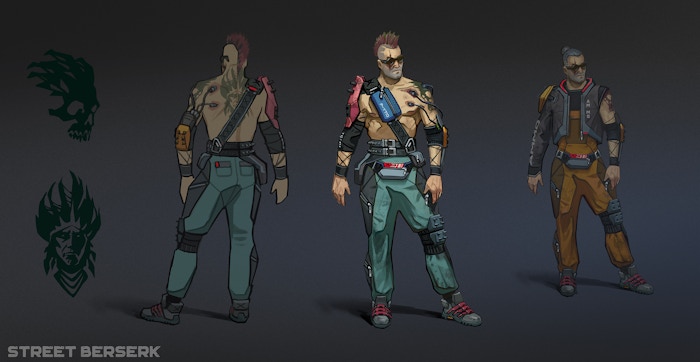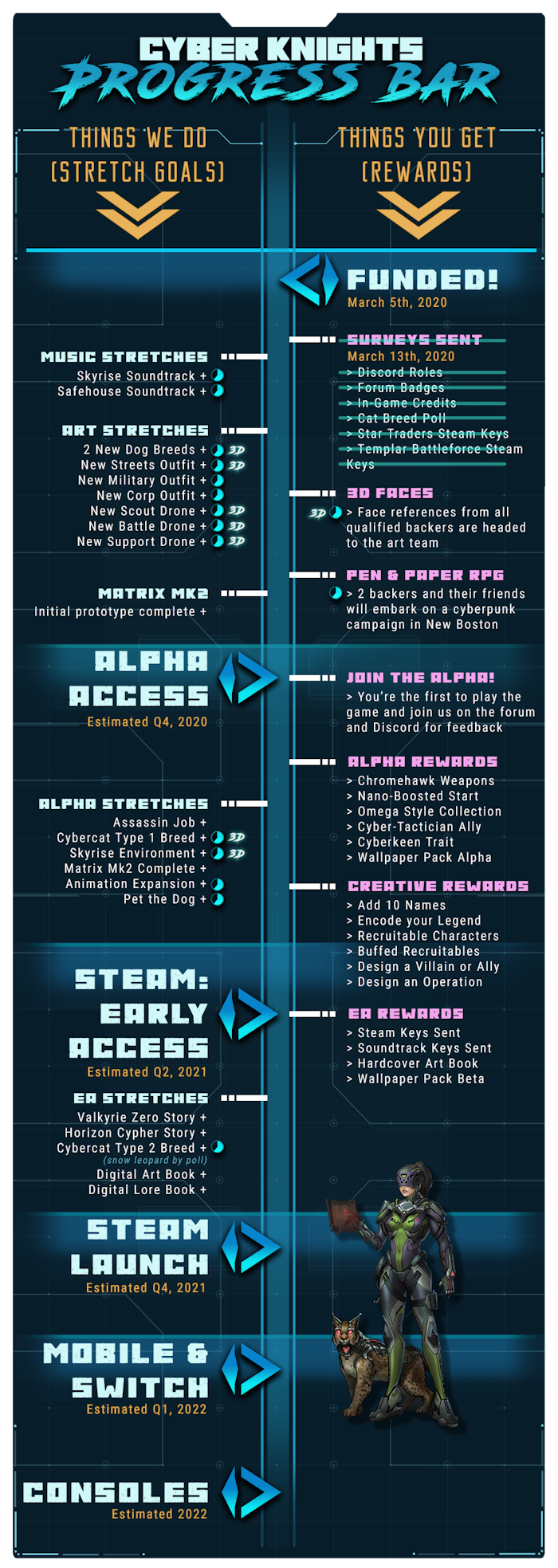- Joined
- Apr 24, 2015
- Messages
- 20,726




https://www.hardcoredroid.com/from-cyber-knights-to-flashpoint-an-interview-with-the-trese-brothers/
From Cyber Knights to Flashpoint: An interview with the Trese Brothers
Indie Veterans Go Big with Cyber Knights: Flashpoint
Trese Brothers Games, one of the most revered names in indie gaming, achieved their Kickstarter goal for their upcoming turn-based tactics game, Cyber Knights: Flashpoint, in only 12 hours, an impressive feat indeed—and one indicative of their fans’ diehard support.
Brothers Andrew and Cory Trese are icons of the mobile and indie gaming worlds. Over the past decade, they’ve made a name for themselves in the industry, whether building and funding games from scratch or through the donations and generosity of their many supporters. What’s more, the team is constantly setting its sights on new horizons, creating bigger projects than before. No stranger to Hardcore Droid, the Trese Brothers have graciously returned for another interview.
What was it like forming a business together, as brothers? What’s it like to work with one another?
Andrew Trese: It feels classic. I’m two years younger than Cory and we’ve always done everything together. Especially when it comes to gaming, game design and pen and paper RPGs. We’ve got a lifelong history together there. So after almost 10 years of working separately in the larger software industry, for me there was an immediate “this is right” feeling when we started on Star Traders RPG. Together again!
How do you make it work, logistically, as siblings and how has this relationship developed over the years?
Cory Trese: We tend to approach a lot of our projects with a divide and conquer strategy, and each of us has our own areas of expertise. Some things have changed over the years—the games cost more to make, the teams are bigger, and the projects are more complex—but some things haven’t changed much at all. We still trust each other completely, and when we do argue about something we tend to forgive and forget pretty quickly.
Andrew Trese: We’ve spent a lot of time playing, creating and loving the same games throughout our lives. We’re lucky to have a strong common ground there between us that helps us see eye to eye on a lot of things. And that natural instinct has just kept growing over the years.
What hobbies do you have outside of gaming? Do these ever make their way into your art?
Andrew Trese: I’m a runner and I admit to spending a lot of time thinking about the stories of our games while out covering miles. Luckily, when we can run together my wife is game to listen to my ramblings, so I’ve got a sounding board too.
Cory Trese: I love to travel, and I often find inspiration for games in distant places and remote spaces. Most of my hobbies tend to take me away from work, from making games, for long enough that I can’t wait to get back to it. In particular, I love the desert in the American Southwest and whenever I can I take time to make the long overland trip in my Jeep with Beagle crew dogs and officers.
How do your resources and overall outlook as a team compare to nine years ago when your creative journey began?
Cory Trese: Our journey started with literally nothing. The first Star Traders game was made with a $0 budget and tested on my personal Android phone. Andrew did all the art. Eventually, I invested $150 on music. It’s hard to imagine that now, how different things were. When we started it seemed like we’d never last long enough to have a budget or a team, but here we are. We may have dramatically more resources at our disposal, but the mission and outlook remain the same. We know that we got to this point by sticking to our principals and putting in the work. Optimism remains high that the same approach will carry us for the next nine years. We just have to keep making great games, and everything will work out.
How have you managed to thrive as a developer of single-pay games, especially in the mobile sphere, an industry dominated by microtransactions?
Andrew Trese: I think finding our message and consistently sticking to it for coming up on 10 years is a big part of our success. We’ve never wavered on our no-ad, no-consumable stance and so our players know what they get. And they know our type of game, we deliver a consistent type. Both of these have built up a strong community on mobile which has helped us keep our head above water there.
Cory Trese: Microtransactions, user acquisition, casual games and advertising are all things that drive a great deal of studio churn. The marketplaces seem dominated by these trends, but most studios never seem to last very long. Mobile studios come and go as fast as the trends on Google Play shift, many of them bankrupted simply trying to maintain the necessary marketing budget. We’ve seen a lot of trends come and go—Amazon Underground, Facebook Install Ads and interstitial video ads to name a few—and while they are all gone, Trese Brothers remains. Our approach might not win any Google Play Top Download Awards, but it is sustainable.
Has the gaming industry changed since we last interviewed you? Do you think it’s heading in the right direction?
Andrew Trese: This is a tough one. Has it changed since our last interview? Many times over but it kind of feels the same. It’s such a big creature, to try to say if it’s heading in the right direction. The technology developments right now—Stadias and VR—are fascinating to watch but I’m glad we’re not involved.
Cory Trese: The trends of consolidation and stratification continue unabated in the gaming industry. Increasingly large players and market owners put pressure on game development studios to compete with themselves while compensation models, exclusives and tiered revenue sharing drive a widening gap between the industry’s winners and losers. It remains to be seen if these trends ultimately offer players better games or not.
Do fans ever uncover something within your games that terrifies you (be it a disgusting clipping glitch or an overpowered, game-breaking, technique)?
Andrew Trese: Daily? Never underestimate players’ abilities to find ridiculous bugs, loopholes and overpowered combinations! Sometimes players will directly message us with the news but most of the time it ends up on a forum. You get a pretty thick skin to this stuff quickly.
The events in Cyber Knights: Flashpoint take place in the same universe as one of your earlier games, Cyber Knights RPG. While I’m sure fans can expect a great deal of fan-service and returning elements, how much of this game will differ from its inspiration?
Andrew Trese: It’s been nine years since the original game was released. We’ve released six games and upgraded game engines twice. There is a part of me that screams “nothing” but what is really shared is the inspirations, genre, lore and feel of the game. Both can accurately be described as turn-based tactics RPGs in classic cyberpunk settings where you manage a team to do the dirty work of the power players of New Boston.
Cory Trese: Cyber Knights: Flashpoint will be a completely different experience across the entire game. We laid out the unique feeling of living as a Cyber Knight in one of our early Kickstarter updates, “A Month in a Knight’s Life” which is sort of a manifesto of the experience, feeling and atmosphere we want to create with the game. It spins an in-world story that follows a Knight’s team as they prep for Operation Blackpool and is one of the best pieces we’ve found to communicate what will make Cyber Knights so special.
Can we expect to see an Android version of Cyber Knights: Flashpoint on day one?
Andrew Trese: For the Kickstarter backers who joined the alpha team, an Android and iOS version of Cyber Knights: Flashpoint will be available right away. But the production quality port that will go to Google Play and Apple App Store isn’t likely to ship until after the game exits Early Access on Steam. It’s the same timeline we used for Star Traders: Frontiers and we found that it let us finish the port after all the major construction—Early Access—had ended.
We couldn’t be happier that you are cross-platforming a turn-based tactical game onto Android. In PC gaming, however, the genre has seen a real resurgence in recent years—what new and cool features will Flashpoint bring to the table?
Cory Trese: Turn-based tactical gaming has seen such an exciting resurgence recently. We’ve seen the release of a new XCOM game and Gears Tactics—just in the past month! Definitely an exciting time for fans of the genre.
Andrew Trese: As we touted in the Kickstarter, we’re planning to use some really cool new angles on turn-based tactics. We’ll be using a flexible action pool to allow your characters to take a wide variety of actions instead of the standard two, the initiative order in a turn is mixed down to the individual character and enemy level instead of by team, and we’ve removed the grid. All combined, we’re delivering a really fast, fluid and fun tactical experience.
Is developing a game as a successor rather than a sequel daunting? Or does it give you confidence? To what extent does your past work influence the direction you’ve taken with Flashpoint?
Cory Trese: I personally find it a bit intimidating. Some players will show up for the classic Cyber Knights experience and find out it is a spiritual successor, rather than a faithful reimplementation—and the game will need to be that much better to win them over. I suppose more than anything I worry about disappointing our fans. The feedback from our Kickstarter backers has helped a lot with that. I think our backers and players will love this new game—and I’m confident that my brother and I will do everything we can to ensure a top quality release.
Andrew Trese: For me, it’s freeing. We have learned so much in the 9 years since making Cyber Knights classic. Making a successor allows us the freedom to use that knowledge to make a better game instead of being strapped to the old game’s features, while still staying true to its core. With a successor in mind, we’ve removed the open-world elements of the original game, added base building and rethought how we create stories in the game altogether by switching to our new blend of hand-written and procedurally generated narratives featured in Star Traders: Frontiers.
I’d imagine breaking from the grid to something with exponentially more movement options might have presented some bumps along the developmental road? Has it been a challenging transition? How have you guys contended with and overcame these challenges?
Andrew Trese: As a long time tactics player, there is something comforting about hovering over every available grid tile and seeing if it is “the one.” With Cyber Knight’s gridless approach, we’re relying on physical sightlines and map awareness to drive positioning and cover. We’re working hard to give players enough intel to make those decisions confidently without having to repetitively hover over every possible location. It’s been a challenge but has forced us to look at new flows of intel for the player, and it’s exciting to be breaking the mold.
Flashpoint will feature a diverse set of character classes with unique traits. What philosophies do you take into balancing elements like leveling and character class?
Andrew Trese: At a high level in the game, we are balancing player agency—picking the exact bonuses from your level and class—with gameplay-driven impacts like gaining Traits in reaction to your actions or things that happen to you like getting shot or shredded. The interplay between these two create all sorts of new opportunities and enticing angles for players to explore. It’s one of the most exciting parts of our core RPG system which we call the Motivation Engine.
Your promotional materials suggest the game might come to consoles as well—have you spoken with any representatives at Sony, Nintendo or Microsoft?
Cory Trese: We have had some preliminary discussions, and we have a good working relationship with Microsoft, Nintendo and in the past, Sony. We’re working on a port of Star Traders: Frontiers to the Nintendo Switch and we discussed an Xbox port with Microsoft. Nothing is certain for Cyber Knights: Flashpoint, and that’s why we didn’t make any firm promises in the Kickstarter, but based on our experience with Star Traders: Frontiers we believe those ports are pretty likely.
Do you have any interest in developing multiplayer games in the future?
Cory Trese: We absolutely do have multiplayer dreams. We both have enough experience as software engineers to know that multiplayer isn’t free—and supporting multiplayer infrastructure to a level we’d be proud of won’t be easy or free. For us to release a multiplayer game, we’d need to be confident that it could live up to our standards of quality and support over the long-term. Secretly I want to make sci-fi ARGP MMOs but I’m not willing to bankrupt the company trying to make them.
Where do you see yourselves in the future? As a writer, every time I reach someone I feel like my purpose is being fulfilled—what are you trying to bring to your audience and to what degree does this process feel like something intrinsic, something that’s a part of you as people?
Andrew Trese: In the process of creating games, I’ve slowly drifted away from being a software engineer and into some dreamland where I am a writer and an artist/art director. Both Cory and I spent many years running pen and paper games. For me, this is an extension and growth of that craft—being able to weave bigger, more visual stories to share with more players—and I hope to just keep honing that skill going forward.
You guys have been a godsend to core gaming on Android. One can’t help but wonder, with so many developers abandoning core mobile gaming development, why have you stuck around?
Cory Trese: We’re scared of what our fans on Android would say if we abandoned them. They’ve been hurt so many times before. Besides, porting our games to Android and complaining about dead batteries in test devices is a Trese Brothers tradition.
Andrew Trese: Long live the tradition! We’re sticking with mobile, it is where we started.
Any upcoming projects on the horizon or ideas you’re itching to start once you’re finished grinding this game out? Anything you want to plug or just tell your audience and ours?
Andrew Trese: If you haven’t seen Cyber Knights: Flashpoint or just missed backing the Kickstarter, then you should wishlist Cyber Knights: Flashpoint on Steam!







